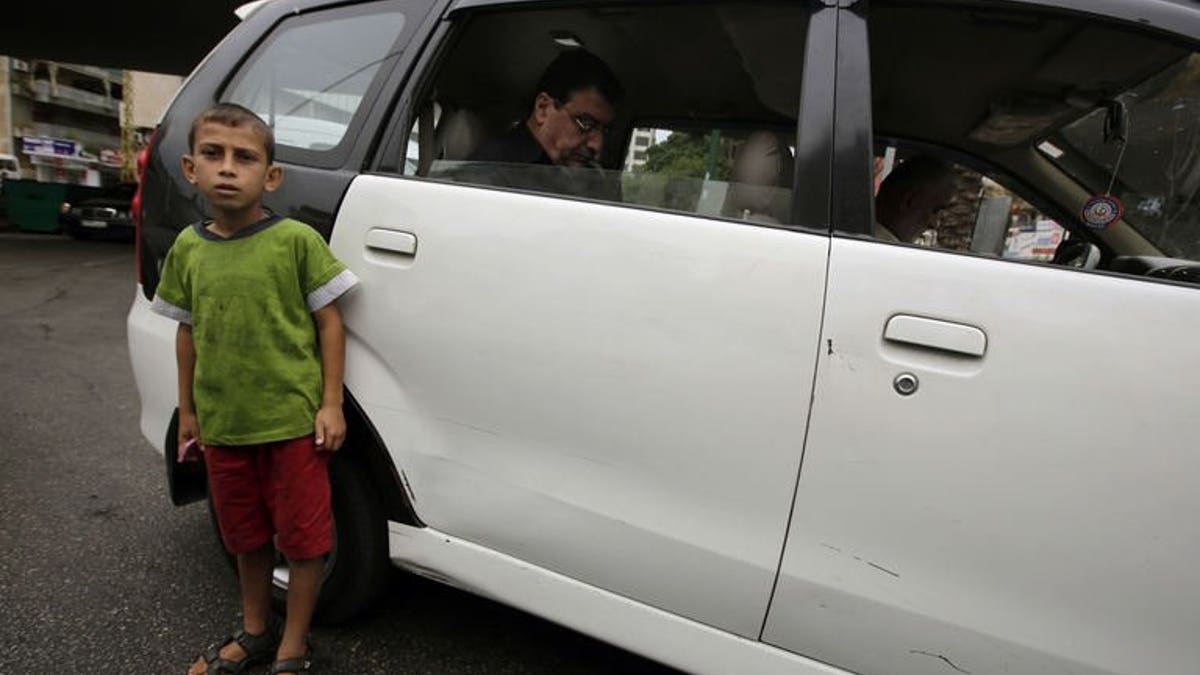
A Syrian refugee child from the northern city of Aleppo sells chewing gum in a traffic jam on a street in the Lebanese capital, Beirut, on Spetember 18, 2013. (AFP/File)
BEIRUT (AFP) – A shortfall of funding from the world community means that only a small minority of Syrian refugee children in Lebanon will attend school this year, UN agencies said Tuesday.
UN Children's Fund representative Annamaria Laurini said only 68,000 Syrian children can be covered by UN-supported education programmes because of funding gaps.
Children make up 52 percent of the 756,000 registered Syrian refugees who have fled to Lebanon from the war in their country.
Speaking at a press briefing, Laurini warned that children deprived of any kind of education risk having "no future."
UNICEF had hoped to provide educational assistance to 200,000 children, but the lack of funds means only a fraction of those can be helped.
UN High Commissioner for Refugees representative Ninette Kelley added that, "to say we have an educational challenge in Lebanon would simply be an understatement."
An appeal calling for $1.6 billion (1.2 billion euros) for UN agencies working in Syria has only been funded by 27 percent, she said.
"That is a very sad statistic," Kelley said.
The 30-month war in Syria has killed more than 110,000 people, and forced millions to flee their homes, disrupting the lives of hundreds of thousands of children.
Lebanon has welcomed the largest share of refugees.
The small country was already struggling with strain to its own education system before the crisis began, which has only worsened with the influx of refugees.
Citing "limited funds and overwhelming numbers," UNICEF's Laurini said the UN can only help the "most vulnerable localities" in Lebanon.
"We have to concentrate on the vulnerabilities, making sure that we are addressing the ones who don't have any other coping mechanism," Laurini said.
The UN says education is key not only to securing children's futures, but also to ensure they are kept clear from dangers such as child labour and other forms of exploitation.
Learning also helps children who suffered conflict recover a sense of normalcy.
Funding shortfalls are also have an impact on children's right to health, the UN representatives said.
"We have to make a very harsh decision only to support life-saving and emergency secondary healthcare," Kelley said.
"How many mums, how many dads have presented children who needed a cataract operation? If the child had the cataract operation, the child could see," she said.
"But the cost of that is so expensive here in Lebanon, and it's not lifesaving... It is heartbreaking the decisions we're having to make because the consequences are so dire when we can't do enough," Kelley added.
In a report published last spring, UNICEF warned of a risk that millions of Syria's children will become "a lost generation."
